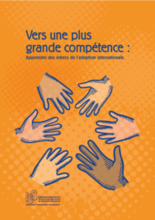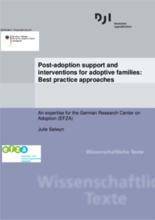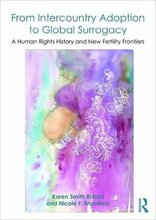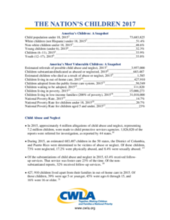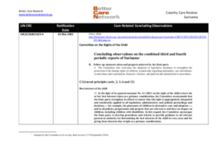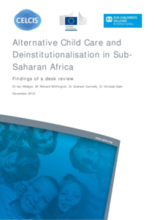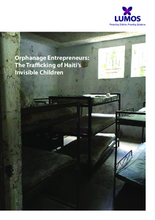Displaying 381 - 390 of 661
Cette nouvelle publication du SSI sur les échecs de l'adoption internationale a pour vocation d'accompagner et d'outiller les professionnels des Autorités Centrales et compétentes et des organismes agréés d'adoption, les personnes adoptées et les parents adoptifs, afin de mieux prévenir et gérer les crises voire échecs que peuvent traverser les familles adoptives.
This rapid literature review was commissioned by the German Research Centre on Adoption (EFZA) located at the German Youth Institute in Munich (Germany). The overall aim of the review was to consider the support needs of domestic and intercountry adoptive families and the evidence for effective interventions. Step-parent, relative and domestic private adoptions were excluded.
Extracting on chronologic data, this book discusses the politics and practice of intercountry adoption starting with the state international adoption to in the 1950s continuing to present-day adoption practice and protections.
The Nation's Children 2017 provides the most up-to-date data on the status of children in the United States, with statistics on children in out-of-home care, child abuse and neglect, adoption, poverty and other risk factors, and more.
This video discusses the challenges social workers face in placing children for adoption in South Africa.
This country care review includes the care-related Concluding Observations adopted by the Committee on the Rights of the Child.
This country care review includes the care-related Concluding Observations adopted by the Committee on the Rights of Persons with Disabilities during the sixteenth session (15 Aug 2016 – 2 Sep 2016) of the Convention on the Rights of Persons with Disabilities.
This document discusses the means by which the Council for the Administration of Criminal Justice and Youth Protection in the Netherlands (the Council) can provide the highest level of protection for children placed in the intercountry adoption focus group.
This desk review provides a brief mapping and summary of existing knowledge on alternative care and deinstitutionalisation in Africa.
According to this report from Lumos, of the estimated 32,000 children who live in orphanages in Haiti, only 20 are percent orphans.

